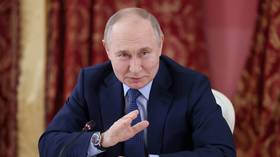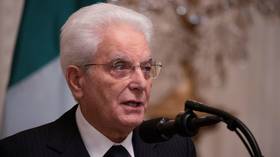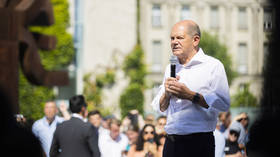No ‘unfriendly nations’ for Russia, only ‘unfriendly elites’ – Putin

Russia has no intention of canceling any country’s culture, President Vladimir Putin said on Wednesday during a working trip to Tver Region. Moscow understands the difference between the people and the elites, and respects every nation’s culture, and also considers its own to be part of the world’s heritage, he explained.
The president was talking to regional artists when the issue of attempts to “cancel” Russian culture by some Western nations was raised. According to Putin, Moscow has no plans to respond in kind.
“We do not have any unfriendly nations, we have unfriendly elites in those nations,” the president said, adding that the Russian government “has never tried to cancel” any foreign artists or cultural performances. “On the contrary, we believe Russian culture to be a part of the global culture and we take pride [in this].”
The Russian authorities seek to take the global cultural context into account and “exclude nothing,” he continued. Those seeking to abolish the culture of a nation inhabited by 190 million people are “not wise,” the president said, referring to Western steps during the Ukraine conflict.
Western nations have repeatedly sought to ban performances by Russian artists and musicians, as well as those deemed supportive of Moscow. Most recently, renowned Italian singer Enzo Ghinazzi, best known as Pupo, had an upcoming performance in Lithuania canceled over a concert he gave at the Kremlin in March.
Pupo arrived in Russia to “convey the message that peace will return to the world,” he told TASS at the time. He also argued against an “embargo of any people’s culture,” calling this stance “wrong.” The Lithuanian venue set to host his performance subsequently announced that it was being canceled, calling it “good news” for those opposed to Russia’s military campaign in Ukraine.
Earlier the same month, South Korea canceled a series of performances by Svetlana Zakharova, a renowned ballerina from Russia’s Bolshoi Theatre, after Ukraine expressed anger over the planned events.
Many Western cultural institutions have sought to completely remove Russian-linked works from their galleries and theaters after the conflict between Russia and Ukraine broke out in February 2022.
The Cardiff Philharmonic Orchestra in Wales dropped the music of composer Pyotr Tchaikovsky from a concert, Britain’s Royal Opera House canceled a tour by the Bolshoi Ballet, and New York’s Carnegie Hall and Metropolitan Opera have stopped allowing most Russian musicians and organizations to perform.
The campaign has reached such a fever pitch that it has drawn criticism from some Western leaders. In April 2023, Italian President Sergio Mattarella called it a “mistaken gesture.” In August of the same year, German Chancellor Olaf Scholz argued against such moves, calling Russian culture part of “our common European history.”














